If you are teaching managerial economics or organizational behavior courses, MobLab has a wide selection of online economics games and experiments to engage your students. Below are some of our favorite economics games for frequently covered topics in managerial economics:
Equity and Fairness Concerns Reputation and Trust Risk Preferences To check out a comprehensive overview of games useful for your course, visit our course catalog.
Equity and Fairness Concerns – The Ultimatum Game is a classic game to highlight equity and fairness concerns. It can be a great launching point to discuss how individuals evaluate outcomes and whether they are willing to incur a cost to preserve norms. The example result from a managerial economics course below shows almost all proposers offered splits more generous than predicted by the subgame-perfect equilibria.
Reputation and Trust – The Trust Game has been a foundational game in organizational economics because, “Trust within organizations increases efficiency by lower monitoring costs (e.g. Frank, 1988), lowering turnover (Dirks & Ferrin, 2002), and increasing uncompensated positive behavior from employees (Dirks & Ferrin, 2002; Konovsky & Pugh, 1994).” (Johnson and Mislin, 2011). In essence, increased trust lowers transaction costs. Use the MobLab results graph to spark discussion among your students about their insights into trustworthy behavior and positive reciprocity.
Risk Preferences – The Bomb Risk Elicitation Task (Crosetto and Filippin, 2013) is a straight-forward way to measure a student’s risk preferences. A bomb is randomly placed in one of 100 boxes, and each student chooses the number of boxes she will open. She earns zero if the bomb is in one of the opened boxes. Otherwise, her payoff equals the number of boxes she opened. Individuals differ in their tolerance for risk (there is no “right” answer). Risk preferences displayed is this game may predict behavior in other risky environments (e.g., a MobLab first-price auction).
Whether you’re teaching in person, online, or both, MobLab has got you covered with economics games for interactive learning and engagement. Get in touch with our team to learn more, click here to schedule a one on one demo meeting.
Equity and Fairness Concerns – The Ultimatum Game is a classic game to highlight equity and fairness concerns. It can be a great launching point to discuss how individuals evaluate outcomes and whether they are willing to incur a cost to preserve norms. The example result from a managerial economics course below shows almost all proposers offered splits more generous than predicted by the subgame-perfect equilibria.
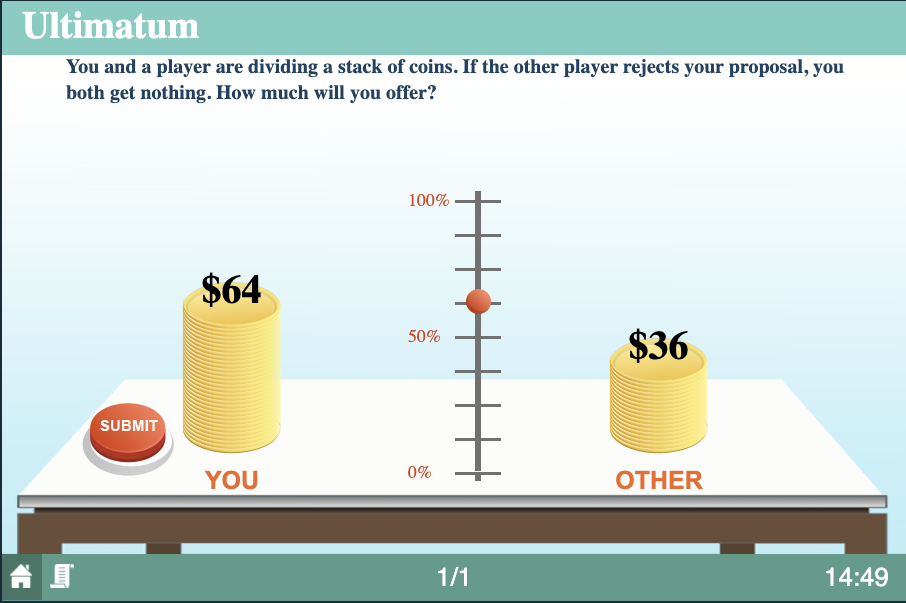
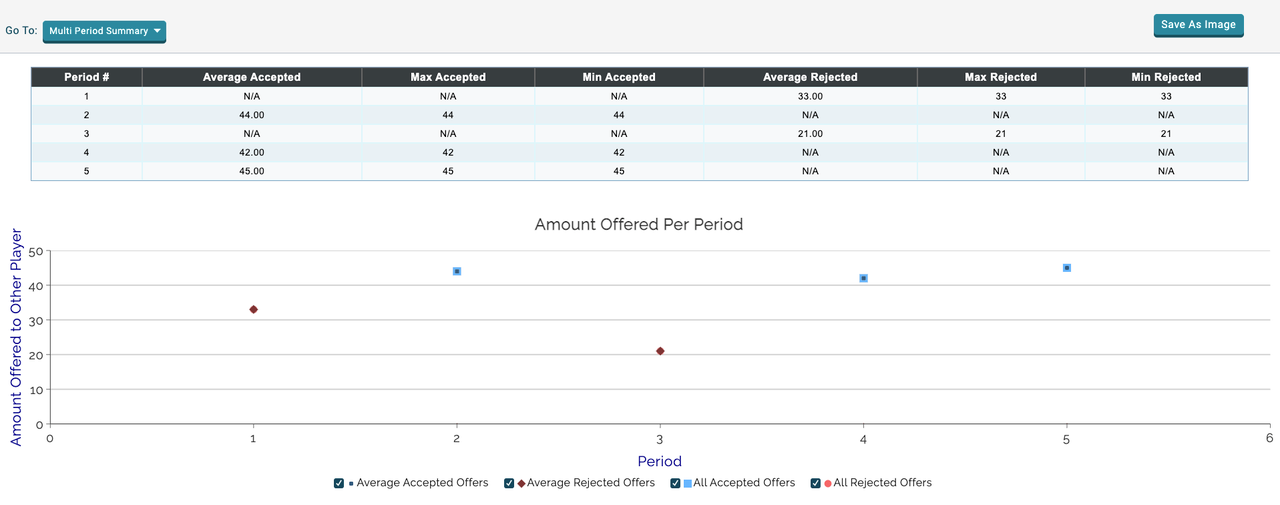
Picture 1: Game interface and chart depicting amount offered per period
Reputation and Trust – The Trust Game has been a foundational game in organizational economics because, “Trust within organizations increases efficiency by lower monitoring costs (e.g. Frank, 1988), lowering turnover (Dirks & Ferrin, 2002), and increasing uncompensated positive behavior from employees (Dirks & Ferrin, 2002; Konovsky & Pugh, 1994).” (Johnson and Mislin, 2011). In essence, increased trust lowers transaction costs. Use the MobLab results graph to spark discussion among your students about their insights into trustworthy behavior and positive reciprocity.
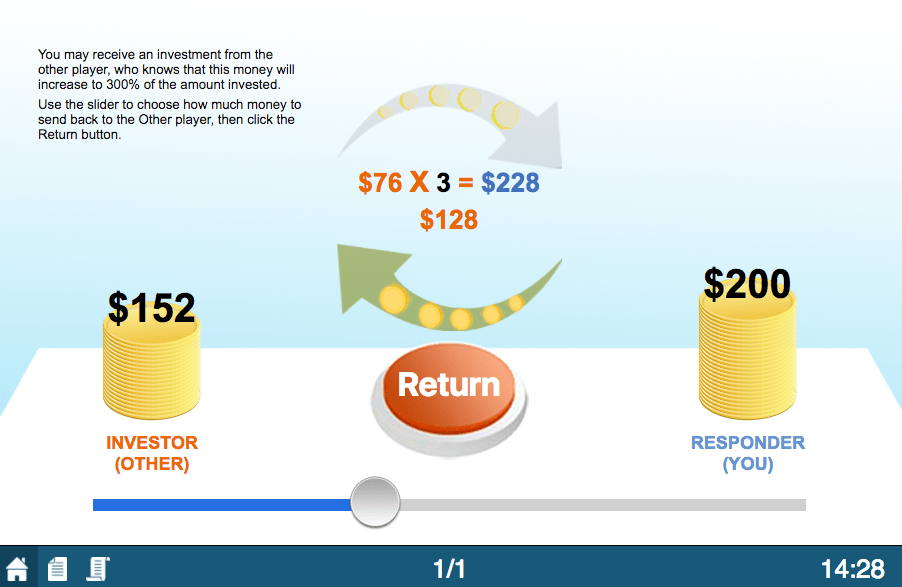

Picture 2: Game interface and chart depicting amount invested and amount returned with two lines (x=y, best-fit for actual amounts returned)
Risk Preferences – The Bomb Risk Elicitation Task (Crosetto and Filippin, 2013) is a straight-forward way to measure a student’s risk preferences. A bomb is randomly placed in one of 100 boxes, and each student chooses the number of boxes she will open. She earns zero if the bomb is in one of the opened boxes. Otherwise, her payoff equals the number of boxes she opened. Individuals differ in their tolerance for risk (there is no “right” answer). Risk preferences displayed is this game may predict behavior in other risky environments (e.g., a MobLab first-price auction).
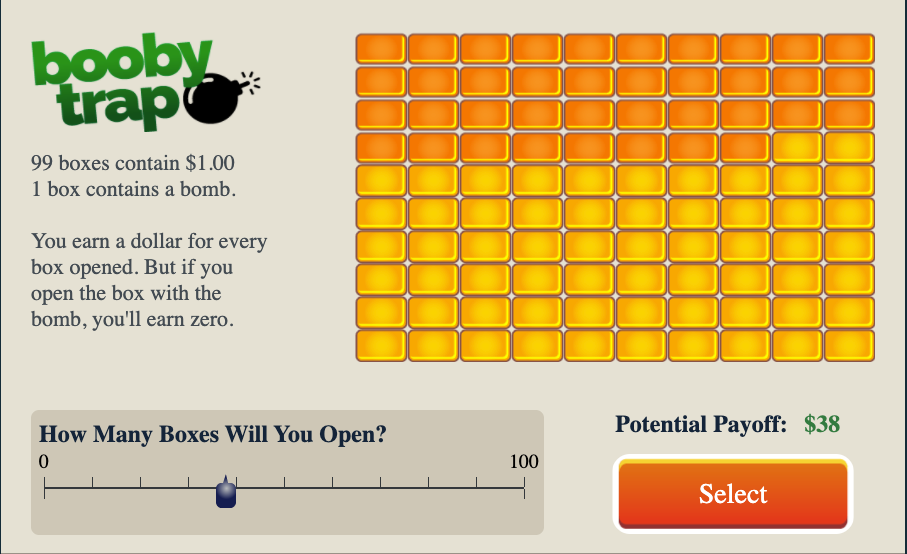
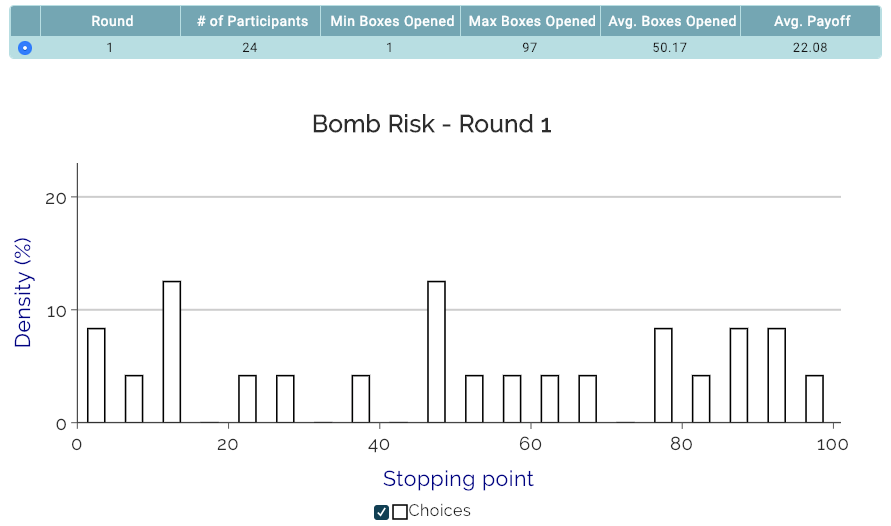
Picture 3: Game interface and density plot depicting students risk preferences (stopping points)
There are so many other areas we could explore here: framing effects, minimum effort (coordination), auctions (e.g. private value, common value, ascending, descending, etc.), basic game theory concepts, competitive market, long run equilibrium, bargaining, and more!
Check out more of our recommendations for managerial economics courses or all of our games in our game library if you have already an account. If you don’t have an account, create one here! Whether you’re teaching in person, online, or both, MobLab has got you covered with economics games for interactive learning and engagement. Get in touch with our team to learn more, click here to schedule a one on one demo meeting.

